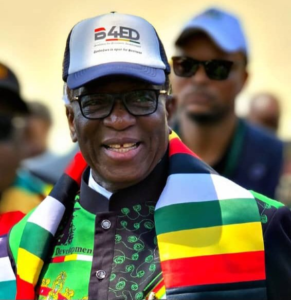U.S. TAKES A BOLD STAND AGAINST CORRUPTION AND HUMAN RIGHTS ABUSES IN ZIMBABWE

In a groundbreaking shift towards curbing human rights abuses and corruption, the Biden administration has significantly intensified the U.S. sanctions regime targeting Zimbabwe. This bold move puts a spotlight on several key figures, including President Emmerson Mnangagwa, his wife Auxillia, Vice-President Constantino Chiwenga, business magnate Kudakwashe Tagwirei, and a cadre of seven other individuals, alongside three distinct entities. The action is anchored in the principles of Executive Order 13818, which builds on the foundation laid by the Global Magnitsky Human Rights Accountability Act. This step is a clear response to their alleged involvement in severe corruption or human rights violations, marking a significant pivot in U.S. foreign policy.
This new wave of sanctions highlights a broader strategy by the United States to ensure accountability and combat corruption and abuse in a more focused and thoughtful manner. It represents a pivotal change from the original sanctions program launched in March 2003, which has been modified through subsequent orders. The aim is now more sharply focused on promoting human rights and anti-corruption efforts effectively.
In addition to the sanctions, the U.S. government has paused its participation in the African Development Bank Dialogue and introduced a new visa restriction policy aimed at individuals who undermine democracy in Zimbabwe. These steps align with the termination of the longstanding sanctions program, demonstrating a renewed commitment to leveraging the Global Magnitsky sanctions framework as a strategic tool for targeting key figures implicated in undermining democratic principles and human rights.
The U.S. administration has articulated the dire situation in Zimbabwe, underlining the “gross abuses of political, economic, and human rights.” The narrative sheds light on the suppression of civil society, significant limitations on political activities, and the misappropriation of public funds by government officials for personal gain. These practices impoverish the Zimbabwean populace and contribute to a global network engaged in bribery, smuggling, and money laundering, adversely affecting communities across Southern Africa and beyond.
By invoking the Global Magnitsky sanctions program, the United States positions itself against the reprehensible actions of Zimbabwe’s most influential figures. The sanctions are meticulously aimed at individuals and entities directly responsible for exploitation and corruption, sparing the Zimbabwean public. This initiative is part of a broader U.S. strategy to support civil society, human rights defenders, and independent media in fostering democratic values, as outlined in the Zimbabwe Democracy and Economic Recovery Act of 2001.
The Biden administration’s decisive measures signal a robust effort to collaborate with the people of Zimbabwe in their quest for democratic freedoms and sound governance. By holding those accountable who deny Zimbabweans their democratic rights, the United States reaffirms its dedication to justice, human rights, and the global fight against corruption. This strategy not only aims at punitive measures against corrupt officials and human rights violators but also underscores the U.S.’s commitment to supporting democracy and human rights globally, offering a glimmer of hope for a more accountable and transparent governance structure in Zimbabwe.



